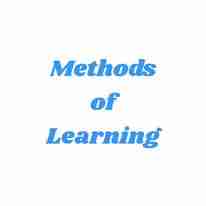
It can help you, family and the Local Authority understand what you do when you can use some of the terminology in this post.
THERE’S NO REQUIREMENT TO NAME WHAT YOU DO, BUT HERE’S A FEW DIFFERENT METHODS OF HOME EDUCATION.
There is lots of discussion about the style of education used, but often not as much about the content itself, the resources used and the way in which it is delivered. There is a huge variety of methods of Home Education. We’ll cover the main ones here.
In this method a topic is chosen (either by the parent or the child) and followed in all areas. As an example, let’s choose “The Romans”. As well as the more obvious parts of this topic – looking at historical sites, maybe building a scale model of a villa or an amphitheatre, and a quick look at Latin and Roman Numerals – the family will use this as the theme for all other subjects. So in English the task would be to write diary entries for 3 different members of Roman society. (A slave, a landowner, and the Emperor, for instance.) They would look at finding and replicating Roman recipes, try out making and wearing a toga, look at the religions present, the relevant parts of the world and how the geography was different then, and how it was affected by the Romans, and so on. Once the topic is exhausted in all areas, a few days is spent having a break from it and choosing a new one to begin; and the cycle begins again. This method is a fantastic way of having some structure to the education but keeping it flexible, especially when there are a range of ages involved. Younger children can complete word-searches and colouring pages while older children are carrying out more in depth work that requires the parent’s assistance; and older children can complete work independently while the parent is helping the younger ones with model building or cooking.
There is a wide range of curricula available to purchase. They usually contain lesson plans and a weekly, monthly, or termly planner as well as all the resources for the lessons themselves. They are a good way of delivering a structured education without having to prepare the lessons and resources, and older children can complete all the work independently unless help is required. This is very useful for families who wish to provide a structured approach but are also busy with work and extra-curricular activities.
The internet is a vast, rich source of learning. As well as raw information, there are lots of websites (both free and pay-to-use) which provide educational skills and full courses for Home Educated children (and their parents) to use. There are sites for the early stages, such as Reading Eggs and Mathseeds, which cover the core skills in Literacy and Numeracy; these are paid sites which the child works their way through in order. There’s “Teach Your Monster to Read” – a free to use site which starts right at the beginning of phonics and works through right up to full words and sentences. Then there are sites such as Khan Academy and Oak Academy, which provides free instruction in just about everything you can think of!
There are also many MOOCs (Massive Open Online Course) which provide free courses from beginners, up to University level and beyond! Search FutureLearn, OpenLearn, Coursera, EdX, Udacity, Alison to name a few.
There are so many out there we can’t possibly list them all, but we have included some here. Ask those around you if they can recommend websites if it’s a resource you’re interested in using.
In much the same way as some online learning sites, there is a range of distance learning courses available that Home Educating families can use. Most of these courses are aimed at older children (11 onwards) but can be used at any age if appropriate for the child. In much the same way as purchasing a prepared curriculum, the distance learning provider will include the books and other resources necessary for the child to use, and some courses culminate in a recognised qualification.
The Open University is a well known example of a distance learning provider; and one which requires no formal qualifications to begin studying with them. Though it is important to note that studying at a level above A-level negates your entitlement to child benefit etc.
For information on GCSEs please look at our Exams page.
Staffordshire website design and website SEO by Fellowship Studios.
Keep up to date with home ed news, important info and some fun stuff.